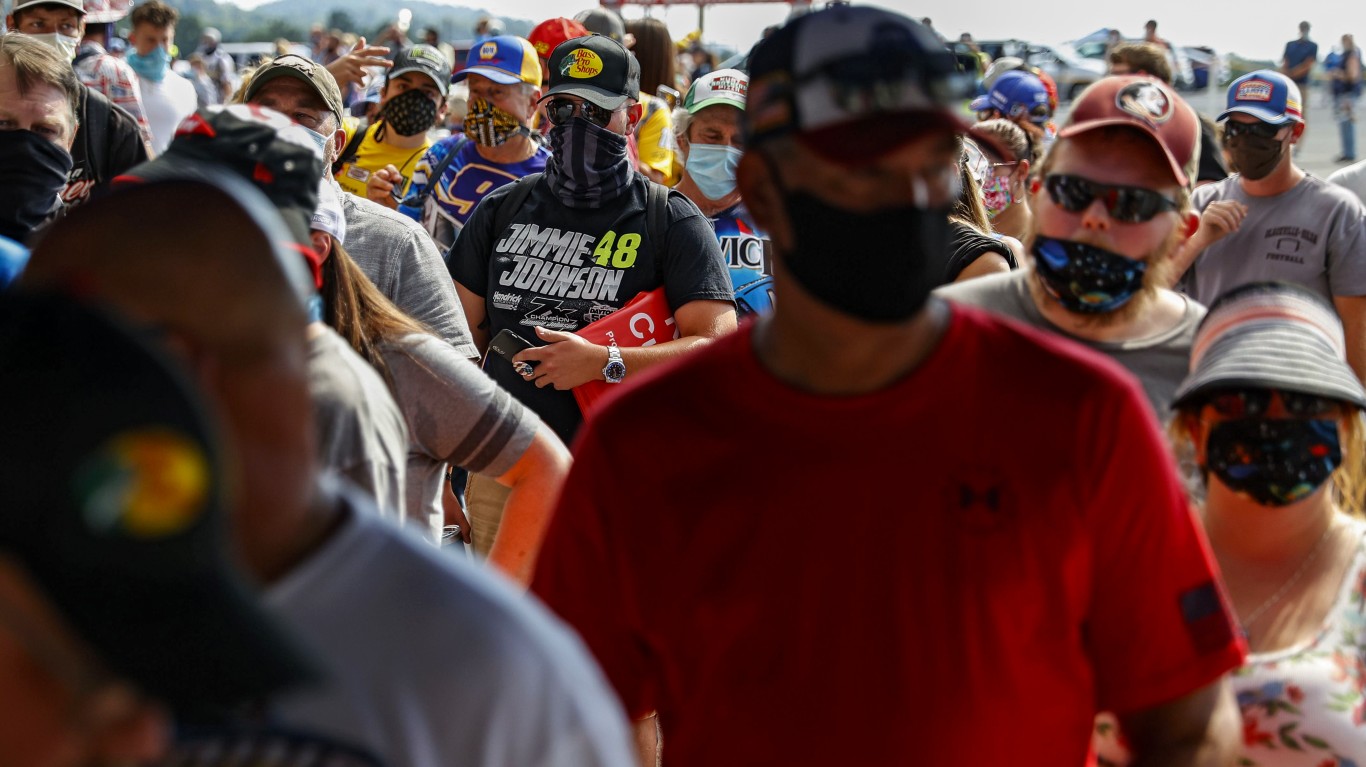
The race for finding the COVID-19 vaccine is in full swing, and it has just seen one team move ahead of the others. Before getting into an actual prediction basis for knowing which vaccine (or vaccines) will work better than others is no assurance that the public will have its winners and losers properly picked out.
24/7 Wall St. has been featuring the would be winners and losers among the COVID-19 vaccines and cures. There is now news out weekly in some form or fashion showing suggestions about which vaccine will win approval first.
The team of BioNTech SE (NASDAQ: BNTX) and Pfizer Inc. (NYSE: PFE) have moved into the front-runner status for which company will get approval first. Moderna, Inc. (NASDAQ: MRNA) had been right there as its Phase III trial is supposed to be ending soon, but there now seems to be a delay as Moderna has pledged that it would have a diverse representation in the testing.
What has helped to boost the BioNTech and Pfizer team came from a CNN interview that its coronavirus vaccine said the shot is nearly perfect. The report also noted that the BNT162 vaccine candidate could even be ready for the necessary approval as soon as next month. According to a CNN interview, BioNTech has said that the BNT162 vaccine candidate could be submitted at some point between the middle of October and the early part of November.
When anyone hears the term “near-perfect” it has to raise some hope. It should also raise some alarms. BioNTech and Pfizer are still recruiting more patients for Phase 3 trials. BioNTech CEO Ugur Sahin used the “near-perfect” term in an interview that appeared to be from a home office. While there should be no directional pointing taken by this statement, that is not the normal messaging that gets used for communicating safety and efficacy data to the public regarding drug studies.
One additional issue worth considering is that nine biopharma companies issued a press release on Tuesday morning with news that they have signed a pledge to uphold high ethical standards when it comes to seeking approval of the COVID-19 vaccine. The pledge is that the companies will not seek premature approval to get their COVID-19 vaccine on the market.
As for how this will get into the hands of the public, if approval is made, the BioNTech and Pfizer team will provide roughly 100 million doses of the BNT162 vaccine candidate by the end of 2020. The companies believe they can provide up to 1.3 billion doses in 2021. While these numbers sound vast, the 330 million or so Americans will not all be getting a vaccine. There are also many other nations in need of a vaccine, and it is still unknown how long a vaccination will offer protection against COVID-19.
The news may have come with a better reaction had the market not been almost entirely red on Monday.
BioNTech’s ADSs were up just 1.2% at $59.30 in late-afternoon trading and the trading volume of 2.3 million shares would be considered unremarkable by the medical and trading community. Shares of Pfizer were down 1.5% at $35.80 in late-day trading.
While the news did not spark a major reaction in the would be winners, the rest of the COVID-19 stock group was feeling a pinch.
Moderna was considered a front-runner just a week ago. It saw an analyst downgrade on Tuesday that may have exacerbated the move, but Moderna’s stock was down a sharp 12.8% at $54.55 on Tuesday afternoon. Its trading volume of 14.8 million shares by 3:00 was also handily under the current average daily trading volume.
AstraZeneca plc (NYSE: AZN) is in a study with Oxford, and they are currently expecting study data out of their U.K. testing between October and year-end. Its ADSs were trading up 1.8% at $54.52 on Tuesday.
There are others in the COVID-19 vaccine hunt as well.
Novavax, Inc. (NASDAQ: NVAX) had recently traded up on positive reports, but its stock was down about 4.8% at $88.40 on only about 65% of normal trading volume.
There are also the teams of Sanofi (NYSE: SNY) and Translate Bio, Inc. (NASDAQ: TBIO) and both of those were trading in positive territory on Tuesday but on lower trading volume than normal.
CureVac N.V. (NASDAQ: CVAC) saw mixed analyst coverage as Jefferies started it with a $58 price target and issued a new Hold rating. CureVac was just given a new Buy rating and a $70 price objective by the team at BofA Securities on Tuesday morning. The firm noted that its “unmodified” mRNA platform is differentiated due to its range, flexibility, and speed of development. BofA Securities even sees room for upside from its COVID-19 vaccine, as well as opportunities in other prophylactic vaccines and oncology. That wasn’t apparently good enough as CureVac shares were last seen down 9.3% at $57.52 on Tuesday afternoon with only 1.2 million shares having traded hands with less than an hour until the stock market’s closing bell.
The hunt for the COVID-19 vaccine is still a very close race. The leaders change from time to time, and it’s becoming a better bet that at least one of the vaccines will win regulatory approvals in the United States and elsewhere in the world. There is also opportunity for more than just one company as there are still unknowns about how long a vaccine will offer protection against the coronavirus.
Want to Retire Early? Start Here (Sponsor)
Want retirement to come a few years earlier than you’d planned? Or are you ready to retire now, but want an extra set of eyes on your finances?
Now you can speak with up to 3 financial experts in your area for FREE. By simply clicking here you can begin to match with financial professionals who can help you build your plan to retire early. And the best part? The first conversation with them is free.
Click here to match with up to 3 financial pros who would be excited to help you make financial decisions.
Thank you for reading! Have some feedback for us?
Contact the 24/7 Wall St. editorial team.


